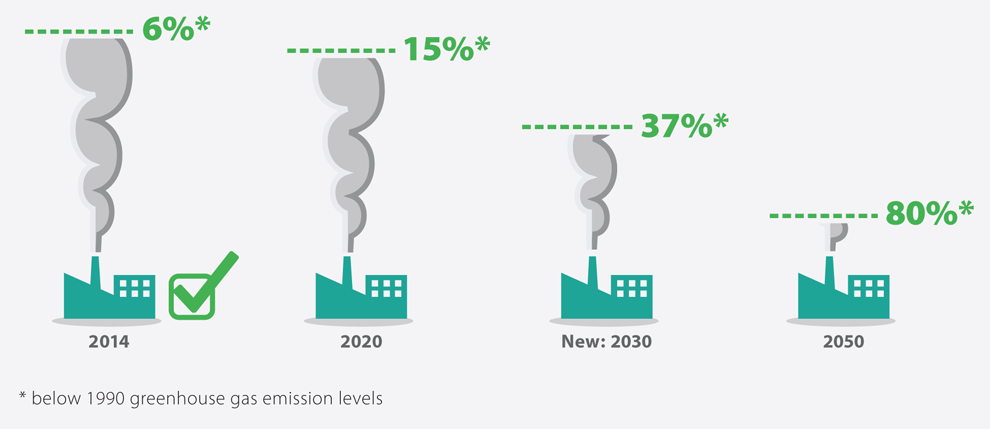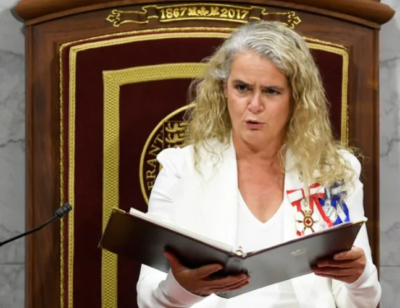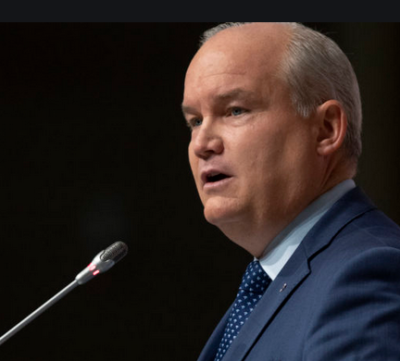 By Ray Rivers
By Ray Rivers
September 25th, 2020
BURLINGTON, ON
OPINION
Part 2 of a 3 part series:
In 1976 the World Meteorological Organization warned of a very significant warming of global climate. In 1992 the UN held an Earth Summit in Rio in which climate change became the major topic. In 1997 the world agreed on the Kyoto Protocol, under which wealthier nations would commit to measured reductions and poorer nations would receive help to reduce theirs.
So what happened? Well, Bush and Harper pulled out of Kyoto and Trump is pulling out of the Paris agreement, the latest effort at global action. The oil industry, which had been studying and must have known the effects of their products on the earth’s climate since the 50’s, engaged in a massive dis-information campaign to challenge the science around global warming.

This was the target – how are we doing so far?
And the oil and gas sector, and their ideological entourage of right wing politicians, were successful. As late as 2015 less that half of all Americans believed that climate change was a serious problem and a year later they elected a bon fide climate change denier as president. The industry pulled a page out of the tobacco companies playbook for deception, denial and mis-information. Unlike the tobacco giants, however, they have yet to face their day in court.
Greenhouse gas (GHG) emissions for the most part are either carbon dioxide (CO2) or methane (natural gas). Methane is a very powerful GHG, upwards of 30 times more effective than CO2, but it is relatively short lived compared to CO2, which can last for hundreds of years.
Methane emissions can be natural as from wetlands, landfill and sewage facilities, melting permafrost, or released as a byproduct of farming from fertilizer or meat production
Methane emissions also come from the extraction, production and transportation of fossil fuels, primarily natural gas. And, along with coal and oil, total fossil fuels make up as much as three quarters of all greenhouse gases (GHG) emitted to the atmosphere. And since the industrial revolution we have increased the carbon in the atmosphere by 30% – an amount which has been increasing just about every year.

Gov. Gen. Julie Payette delivers the throne speech in the Senate chamber in Ottawa.
So what are we doing about this now? On Wednesday the Governor General read a speech from the throne outlining the federal government’s aspirations and plans for legislation they will be introducing. The throne speech is directional, devoid of specific and detailed plans. And this speech for the most part was just a reiteration of last fall’s Liberal election campaign promises, but it made the point that attention to climate change will be one of the four cornerstones of Liberal policy going into the future.
The government promised to create thousands of jobs by retrofitting homes and buildings. It promised to make zero-emissions vehicles and public transit more affordable. It will maintain its carbon pricing policy, subject to a favourable Supreme Court ruling on it’s constitutionality. It will move to exceed its 2030 Paris emission goals. It will make meeting the goal of zero net carbon emissions by 2050 the law of the land.
There was a promise to make Canada a world leader in clean technology by launching a fund to attract new investments in zero-emissions products and cutting corporate taxes in half for those companies. The speech noted that Canada already has the natural resources needed for zero-emissions vehicles and batteries, such as nickel and copper.
A Clean Power Fund will connect surplus clean energy to regions that are transitioning away from coal. And the government will uphold campaign promises to ban single-use plastics by 2021, protect a quarter of Canada’s land and oceans in five years and plant two billion trees by 2029.
Energy was only mentioned twice and the government was almost silent on any goodies for the fossil fuel industry, a marked change from previous years. There was no mention however, that the feds will finally end the subsidies that flow to that sector – something they have been under pressure to do for at least a decade.
Will this be enough when it come to combating Canada’s contribution to climate change? Probably not, but it is the most forward looking set of environmental commitments since former PM Brian Mulroney championed sustainable development back in the late eighties. And unless the NDP or Bloc decide to support the government on the upcoming non-confidence vote we will all be in an election, just as we move into Canada’s second COVID wave.

Leader of the Opposition in the House of Commons Erin O’Toole
Currently COVID quarantined Conservative Leader O’Toole didn’t spell out his objections, other than mentioning his concern with the prospective price tag. And there is no way he can politically support a program which doesn’t promise more oil extraction and pipelines for the west. Much like former PM Harper and leader Scheer, he is captive to the fossil fuel barons and their supporters in Alberta and Saskatchewan.
Trudeau noted that electric vehicles and their batteries will soon be manufactured in Canada, primarily at Ford in Oakville and Windsor, to get drivers out of the gas burners. But the UK is going further, moving to ban the sale of all petroleum powered personal vehicles by 2030. And Norway will be doing that by 2025. Banning the sale of new carbon powered vehicles would be a far more effective policy than even the federally mandated carbon tax.
Absent from Trudeau’s speech was something about the residential and commercial use of fossil fuels in heating and cooking. A ban on sales of gas appliances for new homes and business would have been a measured step to reduce our carbon footprint. And one only hopes that somebody will ban those – so popular they’re out of stock – backyard propane heaters which mostly just heat the outdoors.
It would be fair to say that this throne speech really only addresses the proverbial tip of the fossil fuel iceberg (apologies for that oxymoronic metaphor). But it is a good start and reinforces the results of the last election. Canadians everywhere except the prairies want Canada to move into the post fossil fuel era.
And that is the achilles heel for Mr. O’Toole, the new leader of Conservative party. Despite moving with great speed to modernize existing Tory policy positions, he can’t help but try to keep the separatist Wexit movement from eating up his petro-country base. That political entity has recently rebranded as the Buffalo party, and O’Toole must be praying that like the four legged buffalo they too will almost disappear.
Background links:
How Much Warming – Global Warming – EV’s –
Oil knew about Climate Change – Cows –
Ray Rivers writes frequently on environmental matters



















Two significant notes: Scientists who study and monitor atmospheric chemistry have previously asserted (going back to 2011, at least) that Nitrous Oxide (N2O) will become THE leading, ozone-depleting hothouse gas going forward (the source of much of this being oxidized Nitrogen from agricultural inputs, i.e., fertilizer).
As for methane (certainly a growing problem), it has been shown recently that most CH4 gas is oxidized in the atmosphere (converted into CO2 and CO)…with current levels of emissions holding (relatively stable). So, despite its greater heat-trapping capacity, methane’s contribution to Climate Change is more CO2.
This emphasizes the need for large-scale, direct Carbon Capture & Sequestration (CCS) technology development, insofar as even if we curb /reduce current levels of CO2 inputs, this alone will not stop global warming (since the majority of the CO2 that has caused global warming to date is already present in the atmosphere). Direct CCS (which some refer to as a form of geo-engineering) will inevitably play a major role in Climate Change mitigation in the next two decades.
M.R.
Very well written, as always. As you know I read a variety of journals on this subject. However, as I read here of the efforts to move forward I can’t avoid thinking of the silo effect: problems seen in isolation. I’m referring here to the dearth of discussion about changing values, not just laws. This can begin at least in the high schools, if not before. Not every student will put their geometry or trigonometry lessons to use, but they can one day soon act, and VOTE, on their understanding of ecology and climate science.
Yes, there will be resistance to inserting these into the curricula at various levels. But if education is to continue to validate itself as preparation for responsible adulthood it simply must be done. Even more quickly, several studies have shown that children play a strong role in influencing the voting behavior of their parents. And companies and industries will lose their power once their political stooges are voted out of office.
Following up, ecology and related climate sciences in high schools must move from rare electives to required courses.